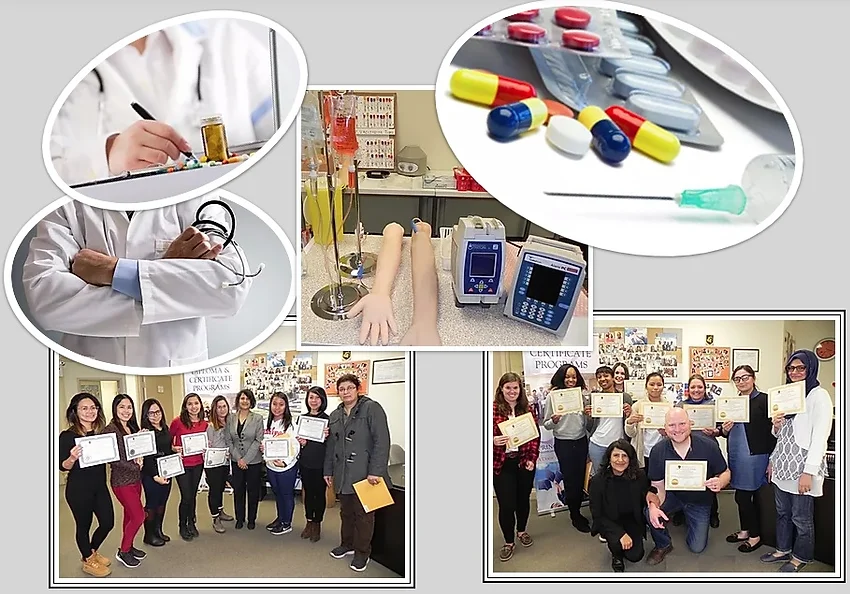MEDICATION ADMINISTRATION AND DOCUMENTATION- VITAL ASPECTS OF HEALTHCARE PRACTICES
- Prof. (Dr) Usha
- Nov 3, 2024
- 3 min read
The Medication practice standard describes the healthcare professionals/nurses’ accountabilities when engaging in medication practices such as administration, dispensing, medication storage, inventory management and disposal. The health professionals/nurses ensure that they have the knowledge, skill and judgment needed to perform medication practices safely. They do not perform medication practices that they are not competent to perform and ensure their medication practices are evidence informed. Three chief principles outline the expectations related to education practices promoting public protection include authority, competence and safety.
Medication Documentation
Nursing or medication documentation refers to written or electronically generated client information, which is an integral part of nursing/medical practice and professional patient care. Documentation is not optional. Nursing documentation is a vital component of safe, ethical and effective nursing practice, regardless of the context of practice or whether the documentation is paper-based or electronic. This document is intended to provide registered nurses (RNs) with guidelines for professional accountability in documentation and to describe the expectations for nursing documentation in all practice settings, regardless of the method or storage of that documentation.
As part of the nursing process, it is important that pre-administration assessment data and post-administration evaluation data should be documented as warranted by the classification of medication or a client’s physical/mental condition.
Drug to Drug Interactions
Drug to drug interactions can involve prescription or non-prescription (OTC) drugs. Types of drug-to-drug interactions include synergism, antagonism and alteration of what the body does to one or both drugs.
Synergism (Duplication) is when two drugs with the same effect are taken; their side effects may be intensified. This can happen when a person inadvertently takes two drugs (often at least one is OTC drug) that have the same active ingredient. Antagonism (Opposition) happens when two drugs with opposing actions can interact, and thus reduce the effectiveness of one or both drugs for example: NSAIDs such as Ibuprofen taken to relieve pain, may cause the body to retain salt when taken with diuretics such as hydrochlorothiazide and furosemide. Alteration happens when a drug alters how the body absorbs, distributes, metabolizes, or excretes another drug. Many drugs are broken down and inactivated (metabolized) by certain enzymes in the liver.
Roles of Nurses in Medication Administration
Know the scope of practice, have knowledge, skill and judgment
Engage in safe medication practices, and contribute to a culture of safety
Assess the appropriateness of the medication practice by considering the patient, the medication, and the environment
Have the knowledge about patient drug allergies
Have the knowledge of expected actions, dosage, side effects of the medication, and any precautions to be taken.
Have the knowledge regarding any alterations in the patient's condition or functional status which may interfere with their physical capacity to take medications such as the patient not being able to swallow oral medications or need for crushing the medicine pills.
Advocate for health and wellbeing of patient and care for individuals of all ethnic origins and religious backgrounds and support them through health and illness.
Competent medication administration include-
Medication administration following the 10 basic medication rights
Preparing the medication correctly and safely
Constantly monitoring the client and appropriately intervening as required
Providing the right education and information about the medication
Evaluating the outcome of the medication on the patient's health status.
Client must be educated about:
The purpose of the medication
The dosage and effects of the medication
The potential side effects and allergies related to the medication
The possible adverse effects/reactions of the medication
Safe storage of medications such as in a refrigerator or in cool, dark places
The importance of keeping medications in a secure place that would not place any child or a cognitively impaired adult at risk for taking medications by mistake
The Medication Administration- continuing education program at Springfield College helps health professional to refresh the knowledge and skills needed to administer medications in a health care or community setting. This continuing education program is designed to provide a concrete theoretical foundation and accurate updated knowledge on different actions, routes, selection, uses and side effects of various medications. Students will review the applicable CNO practice standards and guidelines, as well as explore national patient safety organizations and strategies for safe medication administration. The program also teaches about various routes of medication administration and the skills required to properly administer different types of medications. The program emphasizes upon critical thinking and reflective practice, holistic care and cultural diversity/sensitivity.
References:
1. https://cno.org/Assets/CNO/Documents/Standard-and-Learning/Practice-Standards/41007_medication.pdf
For details of MEDICATION ADMINISTRATION Continuing Education Certificate Program and the best learning-
CONTACT:
1- Bartley Bull Parkway, Suite # 19,
(Across Shoppers World Brampton, Above Food Basics)
Brampton, ON, L6W 3T7
Tel: 905-216-1600; 416-456-6689


Comentários